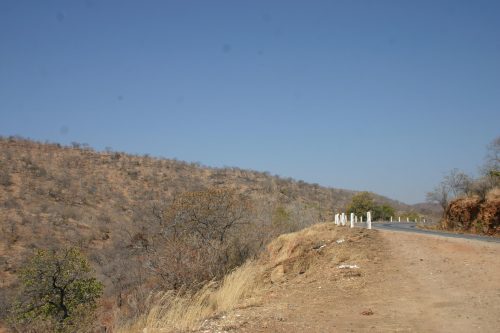I sit on a campstool in Zimbabwe, gazing out over the Zambezi River. In the distance, I can see the mountains in Zambia, bathed in the glow of a pinkish-yellow sunset. Hippos in the river grunt and snort. Birds chirp and flit. Crocodiles lie still and furtive on the riverbank.

For me, this is a meditative time, when the animals’ day shift prepares to go to rest and the night shift yawns, stretches and gets up to go hunting.

The hippos enjoy the twilight hours in the water before they emerge to walk up on land for some night grazing. Hooting night owls replace the daytime’s tweeting warblers. Lions and other predators start thinking about dinner and marking their territory, while impalas try and catch some shuteye in the dangerous night.
We have driven about eight hours from Harare, the capital of Zimbabwe, to the national park Mana Pools, a UNESCO World Heritage Site, stopping for lunch along the way at the Zambezi Escarpment.
Now, having reached our primitive campsite Mucheni in Mana Pools, along the banks of the Zambezi River, we have set up our tents, rolled out our mattresses and found our headlamps. Our guides have started a campfire and will soon be cooking dinner. All things are falling into place before the sudden African darkness falls like a theatre curtain.
I love being on safari in Africa. Sniffing the sweet smell of the dew-fresh morning grass, suddenly spotting an elusive leopard, feeling and tasting the dry, fragrant air, puzzling over tracks in the sand, and lying awake at night in my tent following the sounds of the animals’ nocturnal pastimes all fill me with great pleasure.

